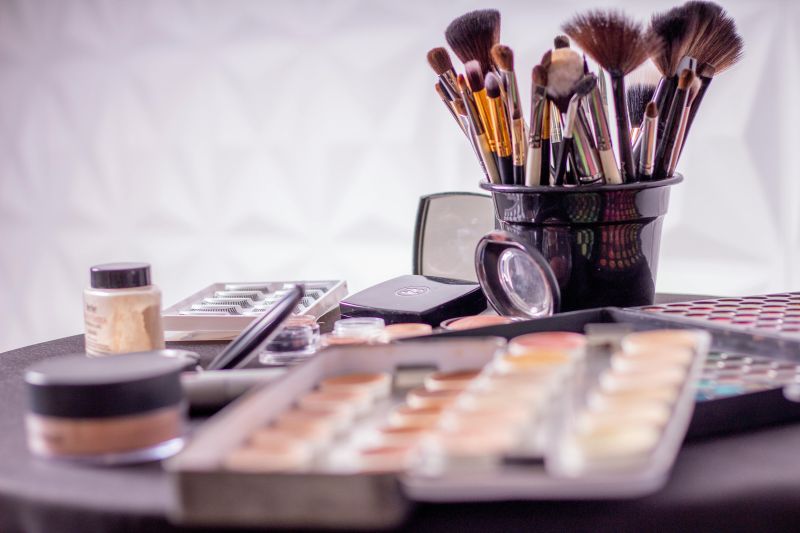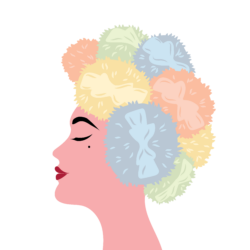What beauty rituals are passed down like family secrets—and how do we know when they no longer belong to us?
We inherit the architecture of our faces,
and the blueprints of how they were managed.
A swipe of lipstick where a scream might’ve gone.
A painted mouth in place of saying too much.
Cosmetic inheritance is never just about color.
It’s about the code.
The wordless agreement: to be palatable is to be safe.

Maybe you don’t remember when “you look tired” taught you that bare lashes were a problem.
Or how, in some homes, wearing no makeup at all was the rule—because restraint was the only acceptable kind of vanity.
But the lesson sank in:
Be pleasing—so your lineage feels proud, not questioned.
And the makeup itself? It wasn’t the enemy.
It was the instrument. The translator.
The only language some of us were ever taught to speak fluently.
What was once handed to us as a manual for survival can become our canvas for rebellion.

It’s not just beauty. We inherit scripts about love, money, gender, rest, grief, ambition:
- From families who preached self-sacrifice louder than self-respect.
- From schools that rewarded silence over originality.
- From religions that equated worth with obedience.
- From generations too hurt to say what they really wanted, so they taught us not to want at all.
We inherit not just behaviors, but burdens.
Not just routines, but roles.
And sometimes, we confuse survival mechanisms with personality.

But makeup—when wielded with awareness—can become a scalpel for self-excavation.
A ritual of remembering.
A decision, not a duty.
To wear a red lip as a reclamation instead of a requirement.
To draw on a brow that says I see myself, even when the world doesn’t.
To go bare-faced, not as an act of purity, but as an act of freedom
Ask yourself:
What parts of your beauty routine feel like a costume?
And what parts feel like a spell you cast for your own becoming?
Because the most radical thing you can do
might not be to throw the makeup bag away—
but to open it with intention.
To ask,
What do I want to inherit from myself?
